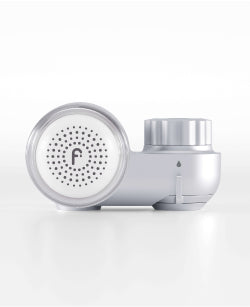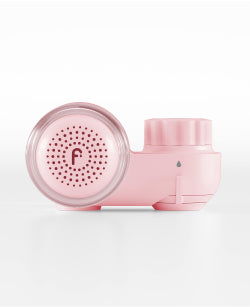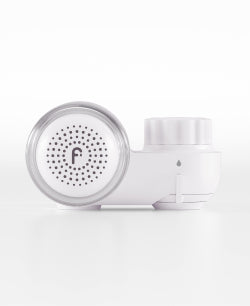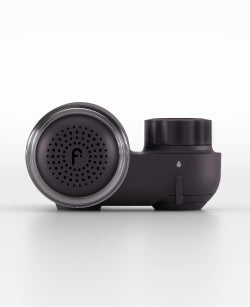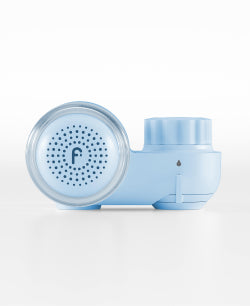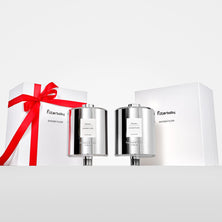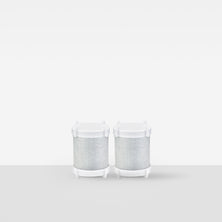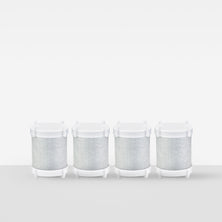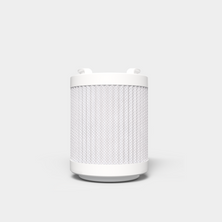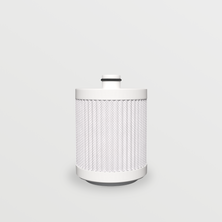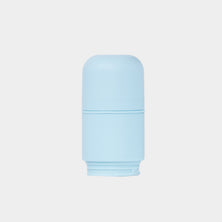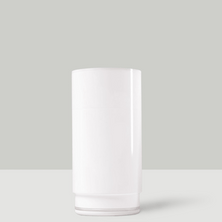Do you know about the impacts of water quality? Read on to find out.
Margaret Trashian, MD

Could your water quality be causing your skin concerns? You follow a skincare routine, stay hydrated, and eat your greens. Still, you suffer from less than perfect skin — water may be the culprit.
Water is not only essential for overall health but also plays a crucial role in dermatology and skincare. Clean water is important for the maintenance of healthy skin. It prevents dryness and flakiness, which can lead to premature aging and dull-looking skin.
Clean water helps prevent skin infections and irritations as bacteria in dirty water can cause infections and skin irritations, leading to discomfort and unsightly rashes or blemishes. Here we’ll let you in on all the different ways the quality of water can affect your skin.
What is quality water?
Quality water should be safe for human consumption, clear and odorless, have an adequate pH balance, low levels of dissolved solids, and free from harmful chemicals. Quality water for skin care should have certain characteristics:
Soft water
Soft water is low in mineral content, particularly calcium and magnesium, which can cause skin irritation, dryness, and eczema. Soft water is less harsh on the skin and can help maintain skin hydration.
Low levels of chlorine
Chlorine is often added to water as a disinfectant, but high levels of chlorine can be harsh on the skin, causing dryness, irritation, and other adverse effects.
Filtered of purified
Water that has been filtered or purified can remove impurities and contaminants, making it suitable for use in skincare and dermatology.
Free from harmful contaminants
Good quality water for skincare should be free from harmful contaminants such as bacteria, viruses, and chemicals that can cause skin reactions and other health issues

What can decrease the quality of water?
Environmental changes
Environmental changes such as climate change and pollution have a significant impact on the quality of water. These changes can cause a decrease in the availability of clean water resources and increase the contamination of existing water sources which can have far-reaching consequences on agriculture and many other industries relying on water.
Climate change can lead to droughts, resulting in reduced water availability and pollution can contribute to the degradation of the quality of water by contaminating it with harmful chemicals and heavy metals. Overall, environmental changes have significant implications for the quality and availability of water resources that can lead to serious health implications for humans and wildlife.
Natural disasters
Natural disasters can have a significant impact on the quality of water, affecting both surface and groundwater sources. These disasters can cause changes to water sources, leading to serious health risks.
Some of the culprits include floods, hurricanes, earthquakes, and wildfires. These natural disasters can contaminate water supplies with pollutants due to land erosion releasing sediments in water sources and disrupting water treatment facilities causing leaks and breaks in water supply systems. It is important to prioritize the restoration of safe and clean water sources following natural disasters.
Biological disasters
Biological disasters include any incident that can lead to large scale health effects due to toxins and micro-organisms such as the aftereffects of the nuclear accidents that took place in Chernobyl and Fukushima. Biological disasters can have a profound impact on the quality of water in affected areas.
Recently in East Palestine, Ohio a derailed train carrying hazardous materials sparked a fire that lasted days and expelled toxic fumes in the environment and contaminated local water sources. Overall, the impact of biological disasters on water quality can have significant long-term consequences for public health and safety.

How to protect yourself against poor water quality?
Effects that come from ingesting poor quality water
Many people know that drinking poor quality water can lead to various health problems. Contaminated water may contain harmful pathogens such as bacteria, viruses, and parasites that can cause waterborne diseases.
However, many don’t consider the effects poor quality water can have on skin.
Using water that is contaminated with harmful chemicals or pollutants can cause skin reactions and allergies, dryness and irritation, premature aging, skin infections, acne, and discoloration.
What can you do about it?
It is possible to reduce exposure to these contaminants by using water filters such as Filterbaby. The Filterbaby system can directly be added to the faucet and includes a carbon fiber filter and a hollow fiber membrane to remove the particles up to 0.1-0.2 microns in size. It also softens water by reducing the amounts of calcium and magnesium present, thanks to PROdermis technology.

FAQ
How is water quality affected?
Air pollution settles onto lakes and oceans. Land pollution can seep into an underground stream, then to a river, and finally to the ocean. Thus, waste dumped in a vacant lot can eventually pollute a water supply.
What is the biggest problem affecting water quality?
Nutrient pollution, caused by excess nitrogen and phosphorus in water or air, is the number-one threat to water quality worldwide and can cause algal blooms, a toxic soup of blue-green algae that can be harmful to people and wildlife.
What causes poor water quality?
Pollutants such as metals, oils, pesticides, and fertilizers runoff from land into the waters, causing excess algae growth and other harmful impacts.
How does water quality impact skin?
Since hard water contains minerals, it can leave a build-up of residue and clogs pores, through which the body releases its natural oils. Clogged pores can lead to acne or even eczema. Hard water can also strip away the natural moisture of the skin, leaving your skin feeling dry.
What is considered good quality water?
Spring water and purified water are considered quality water. Spring water is naturally filtered underground. It's collected from springs or boreholes. Purified water is any type of water that has undergone a controlled filtration and purification process to remove impurities and contaminants.
P.S. We did the homework so you don't have to:
Dean, Kara. “Identifying water quality and environmental factors that influence indicator and pathogen decay in natural surface waters.” Water Research, vol. 211, 2022.
Findell, Elizabeth. “Ohio Train Derailment Contamination Fears Spread Beyond East Palestine.” The Wall Street Journal, 27 February 2023, https://www.wsj.com/articles/ohio-train-derailment-contamination-fears-spread-beyond-east-palestine-fc634e6. Accessed 27 February 2023.
Usman, Muhammed A. “Assessing the effect of irrigation on household water quality and health: A case study in rural Ethiopia.” International Journal of Enviornmental Health Research, vol. 31, no. 4, 2021, pp. 433-452.
